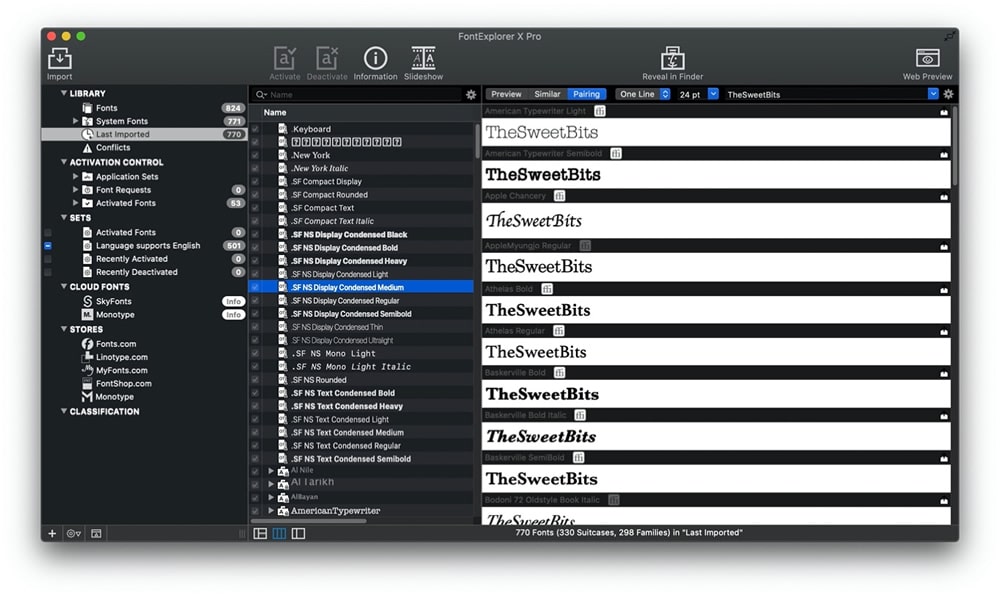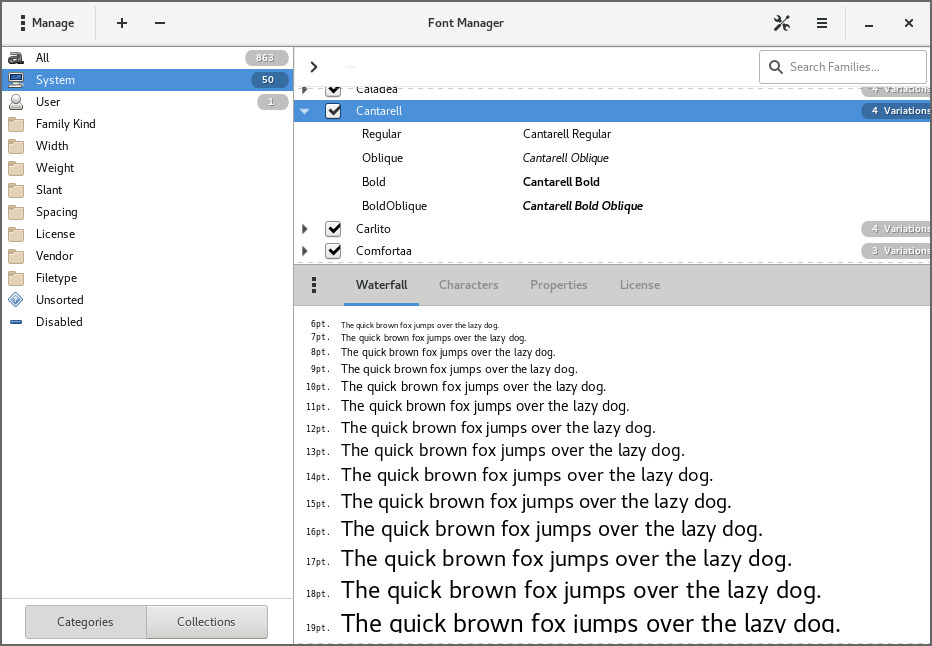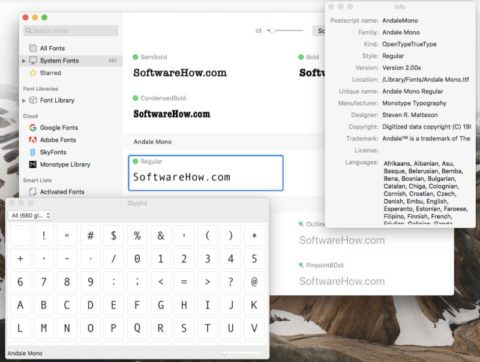

It includes all installed Windows fonts and all fonts in your added folders.

The default folder in the Font Manager is called My fonts. Foldersįolders let you easily access and monitor fonts that reside in the same folder. The Libraries pane has 3 sections: Folders, Collections and Filters. The number of glyphs for the selected font is displayed in the bottom left corner of the Properties pane, and beside it there is a Resize slider to adjust the glyph display size. Under the Glyph Preview list, click on the small arrow to expand the Glyph Details section, which includes information such as name, glyph ID, keystroke, etc. OpenType fonts will also have specific OpenType features, such as different stylistic sets, available as filtering options. In the Glyph Filters area, you can use the checkboxes to filter the Glyph Preview list to show only numbers, currency or symbols, etc.
BEST FONT MANAGER ON MAC CODE
Details to see detailed font information such as version, technology, code page, designer, etc.Glyph set, to preview and filter available glyphs for the selected font or.NOTE : if the Properties pane is not visible, click on the Show font properties button in the top toolbar.Īt the top of the Properties pane you click on the icons to view either: When you select a font in the Preview pane, its glyphs (numbers, symbols and special characters) appear to the right in the Properties pane. Use the Duplicates filter in the Font Status filter category in the Library pane to display only duplicate fonts in the Preview.

BEST FONT MANAGER ON MAC INSTALL
The Font Manager lets you install and uninstall single or multiple fonts as well as entire font families. Installing, Uninstalling and Deleting Fonts The number of fonts on your system is displayed in the bottom left corner of the Preview pane, and in the bottom right corner you can use the Resize slider to change the display size. There is also a Search window at the top of the Preview pane that you can use to search for a specific font. The font names reappear when you clear the Preview Font window. At the top of the Preview pane you can enter sample text in the Preview Font window to see how each font looks with specific characters. Grey – font family containing both installed and not installed fontsĮach font also has a font technology symbol:īy default, each font is displayed in its font name.Yellow – font or font family not installed, available in CorelDRAW and Corel PHOTO-PAINT only.Green with lock icon – protected system font or font family.Green – font or font family that is installed.In the Preview pane, fonts are organized in font families and have a color bar to indicate font status: The interface has a toolbar and 3 main sections: the Libraries pane, the Preview pane, and the Properties pane. The Font Manager can be launched from its own icon, or for Windows users, directly from within CorelDRAW or PHOTO-PAINT via the Application Launcher. In this tutorial we will be using the Windows version, however the application works the same way on both platforms.Ĭlick on any of the images below to view full-size.

It works with CorelDRAW and Corel PHOTO-PAINT to search, filter, organize and manage fonts. The Corel Font Manager is a standalone application included in CorelDRAW Graphics Suite (Windows and Mac).


 0 kommentar(er)
0 kommentar(er)
